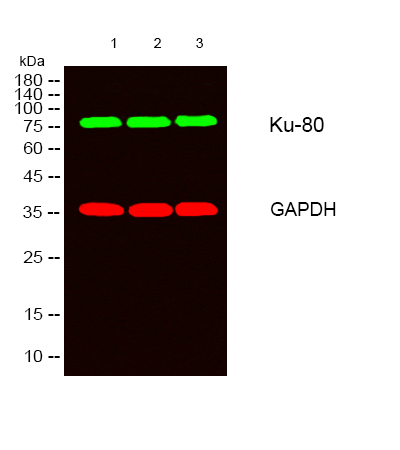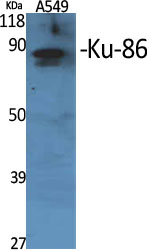Recombinant Human ACE2 protein
- Catalog No.:YD2195
- Applications:ELISA ECL Immunogold
- Reactivity:Human
- Purity:
- >90% as determined by SDS-PAGE
- Fields:
- For research use only .Not for use in clinical diagnostic procedures.
- Gene Name:
- ACE2
- Protein Name:
- ACE-related carboxypeptidase Angiotensin-converting enzyme homolog Metalloprotease MPROT15
- Human Gene Id:
- NP_001358344.1 or Q9BYF1
- Human Swiss Prot No:
- Q9BYF1
- Mouse Swiss Prot No:
- Q8R0I0
- Source:
- Mammalian cells
- Dilution:
- Testing in progress
- Concentration:
- >90% as determined by SDS-PAGE
- Storage Stability:
- Use a manual defrost freezer and avoid repeated freeze thaw cycles. Store at 2 to 8 °C for one week . Store at -20 to -80 °C for twelve months from the date of receipt.
- Molecular Weight(Da):
- 86.28kDa
- Observed Band(KD):
- 100-110kDa
- Background:
- Recombinant Human ACE2 is produced by Mammalian cells expression system and the target gene encoding Met1-Ser740 is expressed with C-HisTag
- Function:
- Angiotensin-Converting Enzyme 2 (ACE-2) is an integral membrane protein and a zinc metalloprotease of the ACE family, the ACE family includes somatic and germinal ACE. ACE-2 cleaves angiotensins I and II as a carboxypeptidase, ACE-2 converts angiotensin I to angiotensin 1-9, and angiotensin II to angiotensin 1-7. ACE-2 is also able to hydrolyze apelin-13 and dynorphin-13 with high efficiency. ACE-2 can be high expressed in testis, kidney and heart, in colon, small intestine and ovary at moderate levels. Captopril and lisinopril as the classical ACE inhibitor don’t inhibit ACE-2 activity. ACE-2 may play an important role in regulating the heart function.
- June 19-2018
- WESTERN IMMUNOBLOTTING PROTOCOL
- June 19-2018
- IMMUNOHISTOCHEMISTRY-PARAFFIN PROTOCOL
- June 19-2018
- IMMUNOFLUORESCENCE PROTOCOL
- September 08-2020
- FLOW-CYTOMEYRT-PROTOCOL
- May 20-2022
- Cell-Based ELISA│解您多样本WB检测之困扰
- July 13-2018
- CELL-BASED-ELISA-PROTOCOL-FOR-ACETYL-PROTEIN
- July 13-2018
- CELL-BASED-ELISA-PROTOCOL-FOR-PHOSPHO-PROTEIN
- July 13-2018
- Antibody-FAQs

